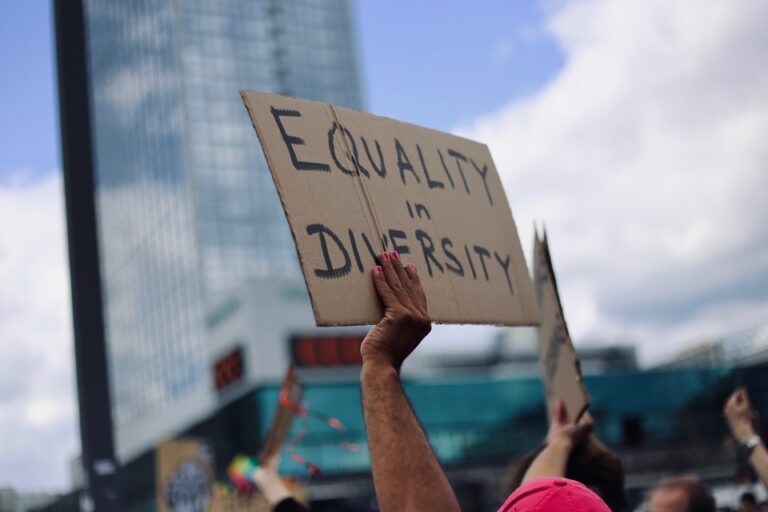Hillary Black is a student at Harvard Law School and a member of the Labor and Employment Lab.
Among the many accounts of gender discrimination at work that have emerged recently is a Title VII claim against Microsoft. The allegations describe Microsoft’s culture as a “boys’ club” environment where employees call women derogatory names, and where women receive less professional support than do men. The plaintiffs also allege sexual misconduct that Microsoft has not adequately addressed, with at least 108 reports of sexual harassment and assault over a six-year period, in addition to 119 complaints of gender discrimination (Microsoft has noted that it has invested over $55 million in diversity and inclusion initiatives and has policies in place to combat sexual harassment). Managers operating within Microsoft’s culture allegedly award pay raises and promotions to men over women.
Thus, a purported class of 8,600 women engineering and IT specialists sued Microsoft under Title VII, claiming disparate impact. But in order to move forward, the plaintiffs must overcome Wal-Mart Stores, Inc. v. Dukes, on which the U.S. District Court for the Western District of Washington relied in denying class certification last year (the court also denied class certification on a disparate treatment claim, which is beyond the scope of this post). Now pending on appeal in the Ninth Circuit, Moussouris v. Microsoft highlights the pernicious effect of Dukes in defeating classwide allegations of discrimination and the need for a regime that gives due weight to the way culture impacts discretion.
Dukes, in a majority opinion by Justice Scalia, makes it difficult for plaintiffs to proceed as a class when any allegedly discriminatory employment decisions stemmed from lower-level manager discretion. Under Dukes, absent a company-wide “common mode of exercising” that discretion, the common questions of law or fact necessary to certify a class under Federal Rule of Civil Procedure 23(a)(2) do not exist. Because the district court in Moussouris found that Microsoft managers used discretion in making pay and promotion decisions, it held that the plaintiffs did not show the commonality necessary to certify a class.
Moussouris thereby embodies the flaw in Dukes that Justice Ginsburg criticized in dissent: a corporate policy allowing manager discretion itself produces gender disparities when managers exercise their discretion within a discriminatory culture. As Justice Ginsburg wrote, “supervisors do not make their discretionary decisions in a vacuum.” When managers work in an environment filled with the degradation and harassment of women, they develop biases that infect their decisionmaking. A disparate impact results.
If we lived in Justice Ginsburg’s world, Microsoft might not fare well at the Rule 23(a) stage. In fact, Justice Ginsburg in her Dukes dissent emphasized certain facts that bear striking similarity to those alleged in Moussouris. In Dukes, the plaintiffs alleged that senior managers at Wal-Mart referred to women employees as “little Janie Qs,” a demeaning nickname—not unlike the demeaning words the women at Microsoft claim some employees used to describe them. The Dukes plaintiffs also claimed that one manager said “[m]en are here to make a career and women aren’t,” just as the Moussouris plaintiffs claim Microsoft’s culture operated to exclude women from the same opportunities for professional growth to which men had access. Any discretionary decisions made amid such a culture would have that culture in common and provide a fine basis for satisfying Rule 23(a)(2).
To ease any fears of crushing liability, Justice Ginsburg’s regime would not exactly make it easy to win a disparate impact class action. First, as Justice Ginsburg noted, plaintiffs would still need to satisfy Rule 23(b) in order to achieve class certification. Rule 23(b) is complicated, and for present purposes it suffices to say that the Moussouris plaintiffs would need to make an additional showing, beyond the Rule 23(a) threshold, that proceeding as a class were appropriate. Second, Justice Ginsburg accepted the possibility that “each individual employee’s unique circumstances will ultimately determine whether she is entitled to backpay or damages”—an inquiry that does not belong in the Rule 23(a) analysis but that does not drop out of the litigation entirely once the court certifies a class. Finally, plaintiffs would need to show disparate impact on the merits, and a business necessity for its practices could save the employer. Justice Ginsburg’s approach opens the door to a disparate impact analysis that accounts for the influence of culture on discretion without enabling unwarranted classwide relief.
Nonetheless, taking Dukes as law, the Moussouris plaintiffs may succeed on appeal if they can adequately distinguish their facts. Indeed, where Wal-Mart in Dukes largely left employment decisions to managers’ discretion without much guidance, Microsoft allegedly had some more rigid procedures in place. According to the plaintiffs’ brief in the Ninth Circuit, Microsoft uniformly allowed managers to recommend pay raises only within prescribed ranges. The gender disparity arose because the prescribed compensation range for any given employee depended on past promotions. Microsoft also established three specific criteria that an employee must satisfy in order for a manager to recommend promotion: business need as determined by company guidance, employee readiness as determined pursuant to a checklist of factors, and available budget. And unlike in Dukes, where the purported class of 1.5 million encompassed workers in 3,400 stores and in every U.S. state, the vast majority of the 8,600-person purported class here worked in Washington and reported to the same four senior managers.
Precedent from other circuits might help the plaintiffs here. In Scott v. Family Dollar Stores, Inc., a Title VII gender discrimination case, the Fourth Circuit concluded that Dukes did not preclude class certification. There, the plaintiffs alleged that a policy setting minima and maxima for employee pay resulted in men systematically receiving higher pay than did women in the same jobs. This allegation seems analogous to the Moussouris plaintiffs’—that men systematically received higher pay than did women who performed similar work because Microsoft required managers to award raises within prescribed compensation ranges. In McReynolds v. Merrill Lynch, Pierce, Fenner & Smith, Inc., a Title VII race discrimination case, Merrill Lynch policy established that the determination of which employees would win certain customer accounts depended on those employees’ past successes. Managers had discretion to supplement that criterion. The Seventh Circuit held that Dukes did not preclude class certification. Similarly, Microsoft policy tied raises to past promotions, with managers having discretion within the prescribed framework. However, in McReynolds, the account distribution policy was closely linked to a policy that allowed employees to form teams, which involved more employee discretion than manager discretion.
Despite these precedents and the uniform policies that the Moussouris plaintiffs alleged, the district court found that lower-level managers retained too much discretion for the plaintiffs to overcome Dukes. Ultimately, Dukes mandates a fact-specific analysis that makes predicting how much discretion is too much discretion a difficult task. The Ninth Circuit could seize on the Moussouris facts as an opportunity to draw a line between too much discretion on the one hand and insufficient discretion to evade class certification on the other. But more sensibly—though perhaps unrealistically—the current reality of gender discrimination at work should inspire a re-thinking of the Dukes doctrine and a shift toward the Ginsburg approach in cases involving allegations of a toxic culture.










Daily News & Commentary
Start your day with our roundup of the latest labor developments. See all
March 3
In today’s news and commentary, Texas dismantles their contracting program for minorities, NextEra settles an ERISA lawsuit, and Chipotle beats an age discrimination suit. Texas Acting Comptroller Kelly Hancock is being sued in state court for allegedly unlawfully dismantling the Historically Underutilized Business (HUB) program, a 1990s initiative signed by former Governor George W. Bush […]
March 2
Block lays off over 4,000 workers; H-1B fee data is revealed.
March 1
The NLRB officially rescinds the Biden-era standard for determining joint-employer status; the DOL proposes a rule that would rescind the Biden-era standard for determining independent contractor status; and Walmart pays $100 million for deceiving delivery drivers regarding wages and tips.
February 27
The Ninth Circuit allows Trump to dismantle certain government unions based on national security concerns; and the DOL set to focus enforcement on firms with “outsized market power.”
February 26
Workplace AI regulations proposed in Michigan; en banc D.C. Circuit hears oral argument in CFPB case; white police officers sue Philadelphia over DEI policy.
February 25
OSHA workplace inspections significantly drop in 2025; the Court denies a petition for certiorari to review a Minnesota law banning mandatory anti-union meetings at work; and the Court declines two petitions to determine whether Air Force service members should receive backpay as a result of religious challenges to the now-revoked COVID-19 vaccine mandate.